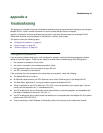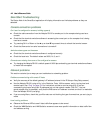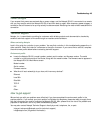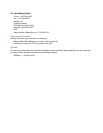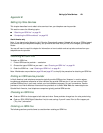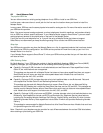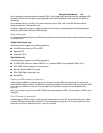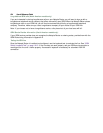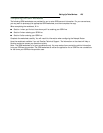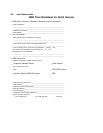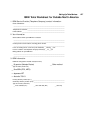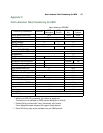Setting Up Telco Services B-3
Not all telephone service providers are aware of IOCs. Even though these providers may not understand IOCs,
they will be familiar with the features and parameters that the IOC defines and can provision the ISDN line
accordingly.
For a complete listing of all IOCs, or for more information about IOCs, refer to the Bell Communications
Research web site at ‘www.bellcore.com’.
In addition, Appendix A contains a reference table summarizing the recommended provisioning parameters
offered by various North American ISDN switches.
Switch protocol type
To configure the Netopia Router, your ISDN service provider must provide you with the switch protocol type used
on your ISDN line.
Outside North America only
The Netopia Router supports the following protocols:
■ EuroISDN (also known as ETSI or NET3)
■ Japanese NTT
■ Australian TS013
North America only
The Netopia Router supports the following protocols:
■ An AT&T 5ESS, Northern Telecom DMS-100, or a Siemens EWSD running National ISDN-1 (NI-1)
■ AT&T 5ESS custom (multipoint or point-to-point)
■ Northern Telecom DMS-100 custom
■ IDSL (ISDN Digital Subscriber Line)
■ Ascend MP+
Directory and SPID numbers (U models only)
A North American ISDN line requires one or more directory numbers (DN) and usually one or more service
profile identifier (SPID) numbers. Your ISDN service provider supplies this information when you order your ISDN
line or after your ISDN line is set up. Once you obtain this information, record it on the worksheet (see
page B-6).
Note: If the switch on your line is an AT&T 5ESS custom point-to-point or IDSL, you will receive no SPIDs, just a
single DN.
Circuit ID number (U models only)
A North American ISDN line has a unique physical address called a circuit ID. You should obtain this number
from your ISDN service provider and record it on the worksheet (see page B-6). The circuit number can help
locate your line and its associated circuit in case of a problem.





